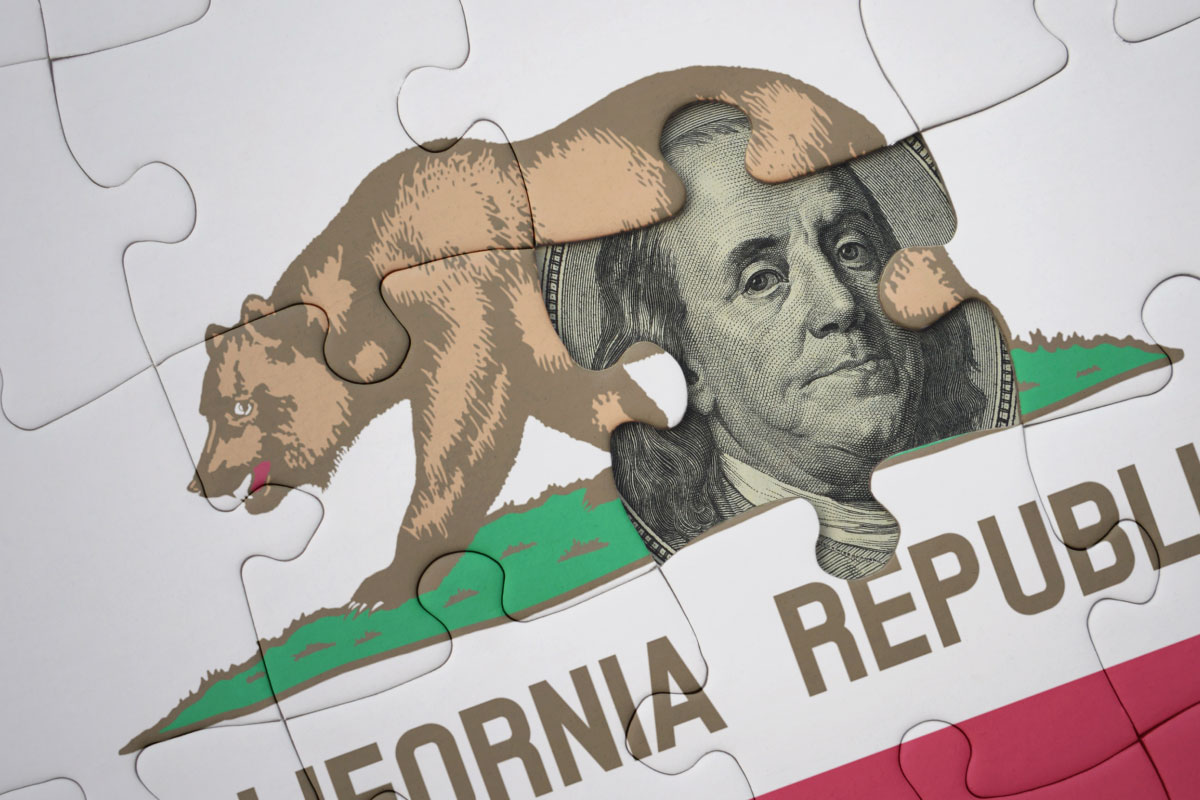Understanding what items are subject to sales tax in California can be complex. While most tangible goods are taxable, there are numerous exceptions and specific rules.
This blog post will delve into the intricacies of California sales tax, helping you determine which items qualify for taxation.
To effectively collect sales tax, businesses must have a clear understanding of what items are taxable and which are exempt. California’s sales tax laws can be intricate, with various categories and exceptions. By grasping these fundamental principles, businesses can ensure compliance and avoid potential penalties.
Let’s explore the basic categories of taxable and non-taxable items in California:
- Taxable Items: Generally, tangible personal property is subject to sales tax. This includes items like clothing, furniture, electronics, and automobiles.
- Non-Taxable Items: Certain goods and services are exempt from sales tax, such as groceries, prescription medications, and most professional services.
In the following sections, we will delve deeper into specific examples of taxable and non-taxable items, providing clarity and insights for businesses operating in California.
What Goods and Services are Subject to and Exempt from Sales Tax in California
What is Tangible Personal Property and Are They Taxable in California
Tangible personal property refers to physical items that can be touched or seen, such as furniture, equipment, vehicles, inventory, toys, antiques, and clothing.
In California, tangible personal property is generally subject to property taxes. These taxes are levied by local governments, not the state. The exact taxation depends on factors like the type of property, its use (business or personal), and its location.
Key points to remember:
- Business personal property: Often taxed based on its value as of January 1st each year.
- Personal property: Includes items like vehicles, which are usually taxed through registration fees.
- Inventory: Generally exempt from property taxes.
Taxability of Digital Goods: Are Digital Goods Taxable in California
Digital goods are generally not taxable in California. This includes items like software, ebooks, music, and digital images. However, it’s important to note that this exemption doesn’t apply if a physical copy or storage medium is provided along with the digital product. Thus, its taxability depends on the nature of the digital product and how it’s delivered.
Key points:
- No general sales tax: California does not impose sales tax on most digital goods.
- Exceptions: If a physical item accompanies the digital product, sales tax may apply.
- Specific rules: Refer to California Board of Equalization Publication 109 for detailed guidelines.
Exceptions: Are Services Taxable in California
Generally, services are not subject to sales tax in California. However, there are exceptions:
- Services resulting in tangible personal property: If a service leads to the creation of a physical product, it might be taxable. For example, custom furniture making.
- Fabrication and assembly labor: Services involved in producing tangible personal property are often taxable.
- Specific exemptions: Some services are explicitly exempt, such as those for the U.S. government or prescription medicine.
To determine if a specific service is taxable, consider:
- Does the service create a tangible product?
- Are there specific exemptions applicable to the service?
Are Streaming Services and Digital Subscriptions Subject to California Sales Tax
Streaming services and digital subscriptions in California are subject to local utility user taxes (UUT), not state sales tax. This means that while there’s no statewide tax, some cities and counties impose their own UUT on these services.
Key points:
- No state sales tax: California does not charge a state-level sales tax on streaming services.
- Local utility user taxes (UUT): Some California cities and counties levy a UUT on streaming services.
- Taxability varies: The specific tax rules depend on the city or county where you reside
Are Food and Beverages Subject to Sales Tax in California
Generally, no. California does not impose a general sales tax on food products intended for human consumption. However, there are significant exceptions:
- Hot Prepared Food Products: These are taxable, regardless of whether they’re sold for consumption on-site or to-go.
- Meals: Food and beverages served for consumption at a restaurant are typically subject to sales tax.
- Specific Excise Taxes: Some food and beverages, like soda, candy, and alcohol, have specific excise taxes applied to them.
Important Note: The taxability of food and beverages can be complex due to various factors like the type of food, where it’s consumed, and specific business models. It’s essential to consult the California Department of Tax and Fee Administration (CDTFA) for detailed guidance.
Bundled Sales and Tax Implications in California
Bundled sales occur when multiple products or services are combined and sold at a single price. Determining the correct tax to apply to such transactions can be complex due to varying tax rates and exemptions across different jurisdictions.
Key Considerations for Bundled Sales Tax:
- Distinct and Identifiable Products: If individual items within the bundle can be easily separated and priced, tax may apply to each taxable item.
- True Object of the Transaction: Some jurisdictions consider the primary purpose of the sale to determine taxability.
- De Minimis Rule: In some cases, if the taxable portion of the bundle is insignificant, the entire transaction may be exempt from sales tax.
- Allocation Methods: For bundles with both taxable and non-taxable items, businesses might need to allocate the sales price to determine the tax base.
Common Challenges with Bundled Sales Tax:
- Complex Tax Jurisdictions: Different states and localities have varying rules for bundled sales.
- Pricing Structures: Bundled pricing can make it difficult to accurately determine the taxable amount.
- Recordkeeping: Businesses must maintain detailed records to support tax calculations and audits.
Resale Certificates in California
A resale certificate is a document a California business provides to suppliers to avoid paying sales tax on purchases made for resale. So, if you purchase items to resell, you might qualify for a resale certificate, which exempts you from paying sales tax. This certificate verifies that you’re buying products for resale and not for personal use.
Key Points:
- Purpose: To exempt purchases from sales tax when items are bought for resale.
- Requirement: Businesses must have a valid seller’s permit to issue resale certificates.
- Format: No specific form is required, but the certificate must include certain information (business name, address, seller’s permit number, item description, statement of resale intent).
- Misuse: Using a resale certificate fraudulently is a misdemeanor.
Where to Get a California Resale Certificate:
- Create your own: Use a simple document containing required information.
- Download a blank form: Available online from the California State Portal.
Important Considerations:
- Seller’s Permit: Necessary for issuing resale certificates.
- Verification: Suppliers may verify resale certificates with the California Board of Equalization.
- Tax Implications: Incorrect use can lead to penalties and interest.
Is Drop Shipping Subject to or Exempt from Sales Tax in California
Drop shippers in California are generally liable for sales tax. This means they must collect and remit sales tax on products shipped to California customers, even if the products are shipped directly from the supplier.
Key Points:
- Drop shipper liability: In many cases, the drop shipper is considered the retailer and is responsible for collecting and remitting sales tax.
- Resale certificate: A resale certificate from the true retailer might exempt the drop shipper from tax liability.
- Economic nexus: If the drop shipper meets California’s economic nexus threshold, they must collect and remit sales tax.
- Sales tax calculation: The drop shipper typically calculates tax based on their selling price to the true retailer plus a 10% markup.
California Remote Sellers and Economic Nexus
California’s Economic Nexus Law requires out-of-state businesses to collect and remit sales tax if they exceed $500,000 in sales of tangible personal property to California consumers in a calendar year. This law took effect on April 1, 2019.
Conclusion
Navigating the complexities of California sales tax can be a daunting task for businesses. With numerous exceptions, specific rules, and evolving regulations, ensuring compliance is crucial to avoid penalties and operational disruptions.
This blog post has provided a comprehensive overview of taxable and non-taxable items in California, including tangible personal property, digital goods, services, food and beverages, and more. Understanding the nuances of bundled sales, resale certificates, drop shipping, and economic nexus is essential for businesses operating within the state.



